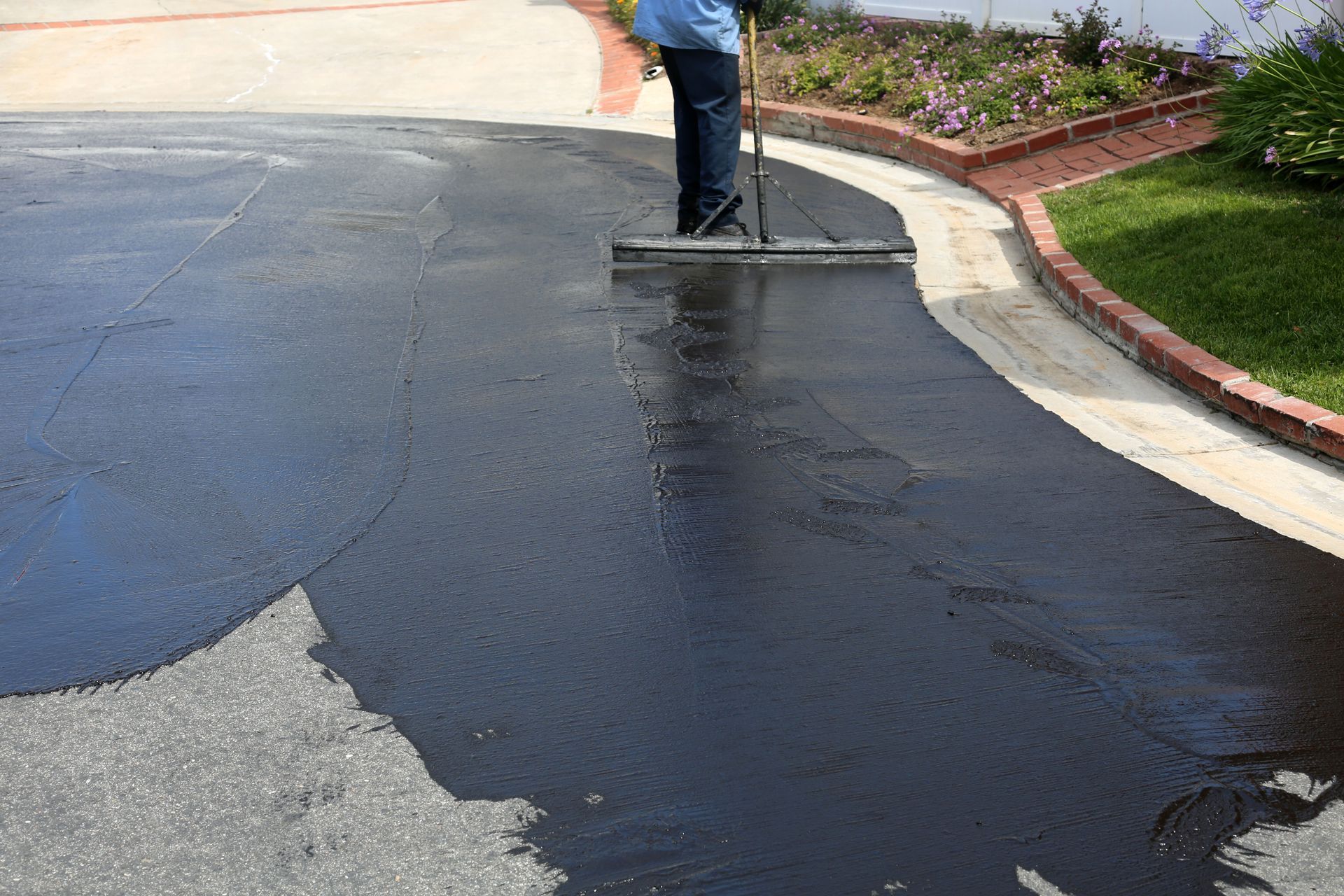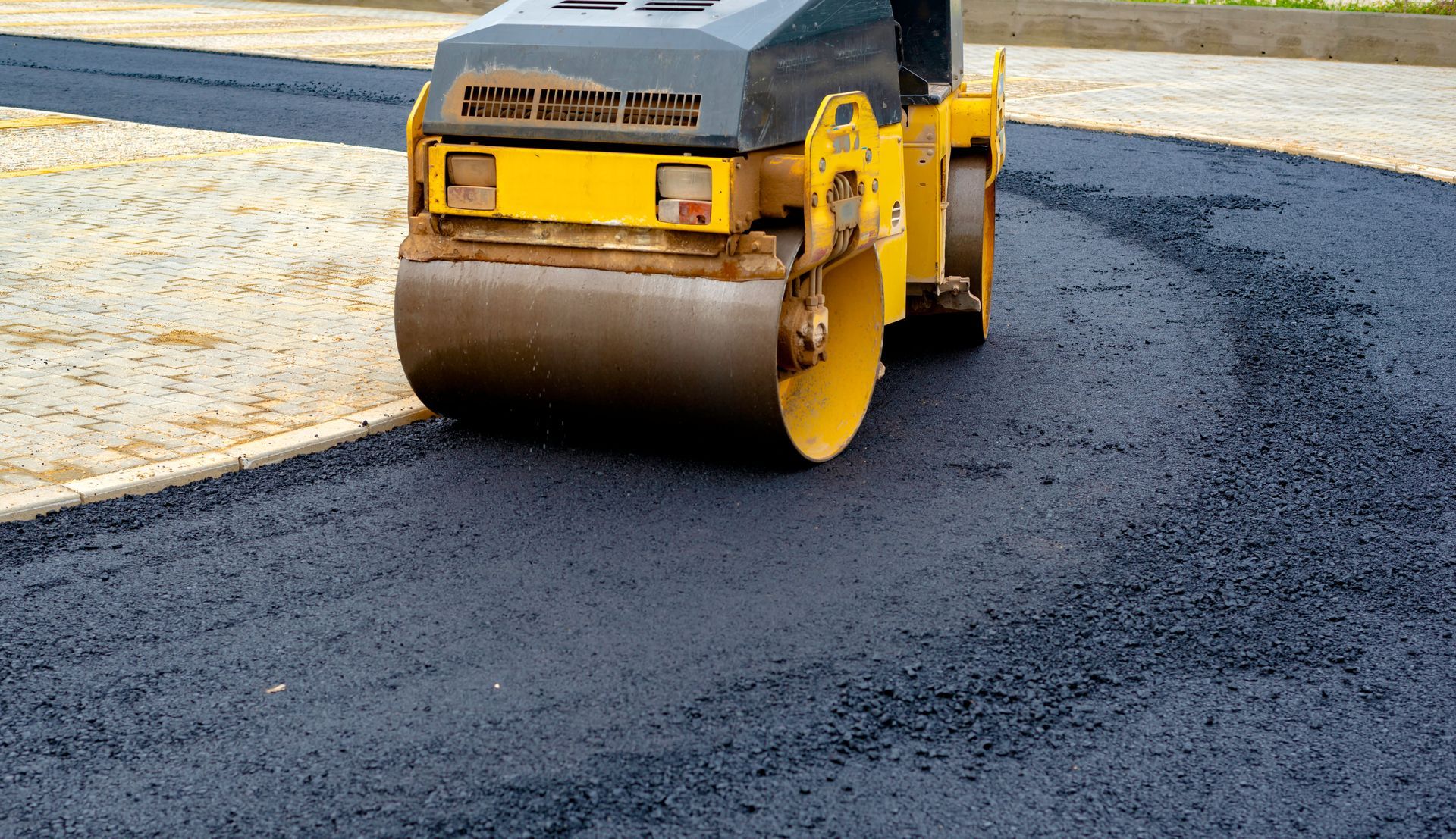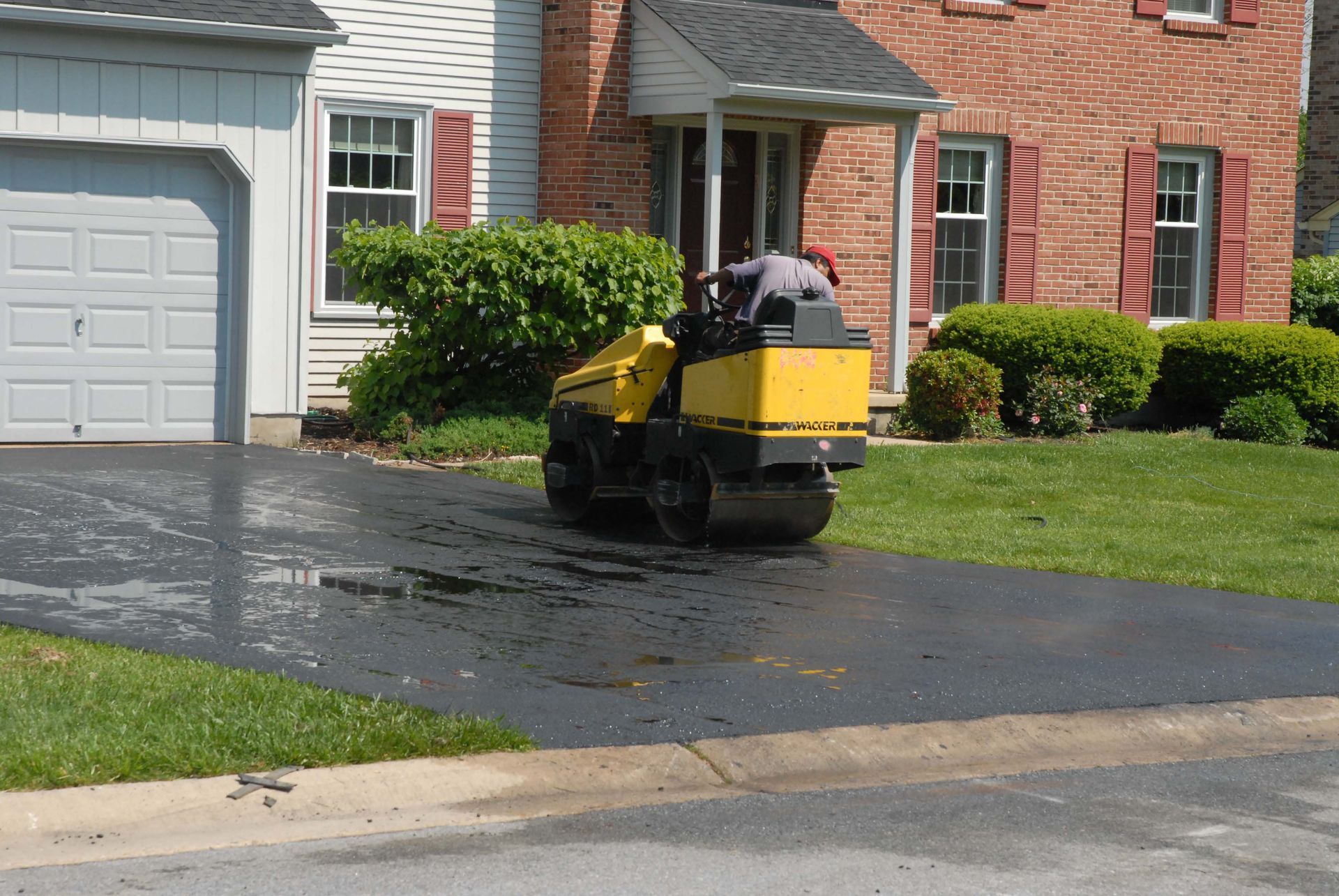November 21, 2025
When it comes to selecting a material for a new driveway, homeowners face a variety of options, from concrete and gravel to brick and pavers. Among these, asphalt paving stands out for its combination of affordability, durability, and ease of maintenance. According to This Old House, there are 75 million driveways in the U.S., highlighting just how important it is to choose a material that balances long-term performance with cost and visual appeal. For many property owners, asphalt paving offers the ideal solution, delivering a sleek and durable surface that can enhance both the functionality and appearance of a home.
Asphalt has been used in driveway and road construction for decades, and advancements in modern paving techniques have made it even more practical and attractive. Beyond its traditional use in public roadways, asphalt paving has become a go-to choice for residential driveways because it combines practicality with aesthetic versatility. Homeowners often find that asphalt driveways not only complement the exterior of their homes but also provide a smooth, reliable surface for vehicles of all sizes. From single-family homes to larger properties with multiple vehicles, asphalt provides a uniform and professional appearance that adds to a home's overall curb appeal.
Additionally, asphalt paving can be customized in terms of color and finish, offering homeowners some flexibility in achieving a look that matches their property. While black remains the most common choice, lighter aggregates or decorative patterns can be incorporated to create a unique surface. This versatility makes asphalt paving suitable for a wide range of residential styles, from traditional to modern.
What Makes Asphalt Paving a Cost-Effective Choice?
One of the most compelling reasons to choose asphalt paving is its cost-effectiveness. Compared to other driveway materials such as concrete, pavers, or natural stone, asphalt typically comes with a lower initial installation cost. This makes it an accessible option for a wide range of homeowners, particularly those looking to balance budget with quality.
The affordability of asphalt paving does not mean sacrificing quality. On the contrary, asphalt provides a durable and long-lasting surface that can withstand years of use. Homeowners often find that the combination of lower upfront costs and long-term durability makes asphalt one of the best investments for improving their property.
Additionally, asphalt’s cost-effectiveness extends beyond the initial installation. Its maintenance and repair needs are generally simpler and less expensive than those associated with other driveway materials. Minor cracks or surface imperfections can often be repaired with small patching or sealcoating, allowing homeowners to extend the lifespan of their driveway without incurring significant costs. When compared to concrete, which can require major repairs or section replacements over time, asphalt proves to be more forgiving and easier to maintain. For property owners who want a long-lasting, attractive driveway without overspending, asphalt paving provides both immediate and long-term financial benefits.
How Durable Is an Asphalt Driveway Compared to Other Materials?
Durability is a critical factor when selecting a driveway material. Asphalt paving is known for its resilience and ability to withstand a variety of weather conditions, from extreme heat to heavy rainfall. Unlike gravel driveways, which can shift, develop ruts, and require frequent regrading, asphalt maintains a stable, uniform surface that can handle daily vehicle traffic with minimal wear.
Compared to concrete, asphalt offers a degree of flexibility that helps prevent cracking under pressure. This flexibility is particularly advantageous in regions that experience freeze-thaw cycles, where the expansion and contraction of soil can often cause other materials to fracture. Asphalt can absorb these small movements without developing significant cracks, which helps prolong the life of the driveway.
Another factor that contributes to asphalt’s durability is its ability to support heavy loads. Properties with multiple vehicles, larger trucks, or delivery vans benefit from asphalt’s capacity to distribute weight evenly across the surface, reducing the likelihood of depressions or damage over time. With proper installation and regular maintenance, an asphalt driveway can remain functional and visually appealing for decades, making it one of the most durable options for residential driveways.
What Environmental Benefits Does Asphalt Paving Provide?
Beyond cost and durability, asphalt paving offers several environmental benefits that may appeal to eco-conscious homeowners. Modern asphalt is highly recyclable, meaning that old pavement can be repurposed for new projects. This reduces waste, conserves natural resources, and minimizes the environmental impact of installing new driveways.
Asphalt also has reflective properties that can help mitigate the urban heat island effect, where dark surfaces absorb heat and raise local temperatures. Some advanced asphalt mixtures incorporate lighter-colored aggregates or permeable designs, allowing rainwater to filter through the surface and reduce stormwater runoff. Permeable asphalt can help prevent erosion and reduce the strain on municipal stormwater systems, making it a sustainable option for homeowners who want to minimize their environmental footprint.
In addition,
asphalt paving requires less energy to produce than some alternative materials, such as concrete. The combination of recyclability, water management benefits, and energy efficiency makes asphalt a responsible choice for homeowners who prioritize sustainability alongside performance and aesthetics.
How Does the Maintenance of Asphalt Compare to Other Driveway Options?
Maintaining an asphalt driveway is relatively straightforward, especially when compared to alternatives like concrete, brick, or pavers. One of the simplest ways to protect an asphalt surface is through regular sealcoating, which helps preserve its appearance and prevent cracks from forming. Sealcoating acts as a barrier against moisture, chemicals, and UV damage, extending the life of the driveway and keeping it looking fresh for years.
In addition to sealcoating, minor cracks and surface damage can be repaired quickly and inexpensively. This contrasts with concrete, where repairs often require replacing entire sections of the driveway, a process that can be costly and time-consuming. Asphalt paving’s low-maintenance requirements make it an attractive option for homeowners who want a durable driveway without the need for constant attention or extensive repairs. Routine maintenance, such as clearing debris and applying protective coatings, ensures that the driveway continues to perform well, even under heavy traffic and varying weather conditions.
What Is the Installation Process for Asphalt Paving Like?
Understanding the installation process can help homeowners feel confident in choosing asphalt paving. The process typically begins with site preparation, which includes removing existing surfaces, grading the area, and ensuring proper drainage. A well-prepared base is essential for a long-lasting driveway, as it provides the stability needed to support the asphalt surface.
Once the base is ready, the asphalt is poured, spread, and compacted using specialized equipment. Modern paving machinery allows contractors to achieve a uniform and smooth surface, ensuring both functionality and visual appeal. Proper compaction prevents air pockets and weak areas, which could lead to future cracks or depressions. After installation, the surface is allowed to cool and cure, at which point it is ready for use.
Additional Benefits of Asphalt Paving for Residential Properties
In addition to cost, durability, and environmental advantages, asphalt paving provides a number of practical benefits for everyday use. Asphalt driveways create a smooth surface for walking, cycling, and driving, reducing the risk of tripping hazards or vehicle damage that can occur with uneven gravel or broken concrete. The dark surface of asphalt also melts snow and ice more quickly than lighter materials, making winter maintenance easier and safer for homeowners.
Moreover, asphalt paving can enhance a property’s curb appeal. A clean, well-maintained asphalt driveway provides a polished, professional appearance that complements landscaping and exterior home features. For properties with multiple driveways or shared access roads, asphalt offers a consistent and cohesive look, improving the overall aesthetic of the neighborhood.
Choosing asphalt paving for your driveway offers numerous advantages, from cost-effectiveness and durability to environmental benefits and easy maintenance. Asphalt paving provides a reliable, versatile solution that meets these needs, making it an excellent choice for homeowners considering a new driveway. With proper installation, regular maintenance, and the guidance of experienced professionals, an asphalt driveway can provide years of performance, safety, and beauty, proving that this classic material remains one of the best options for residential properties today. If you need a new driveway, reach out to the team at Road Works Paving today!





